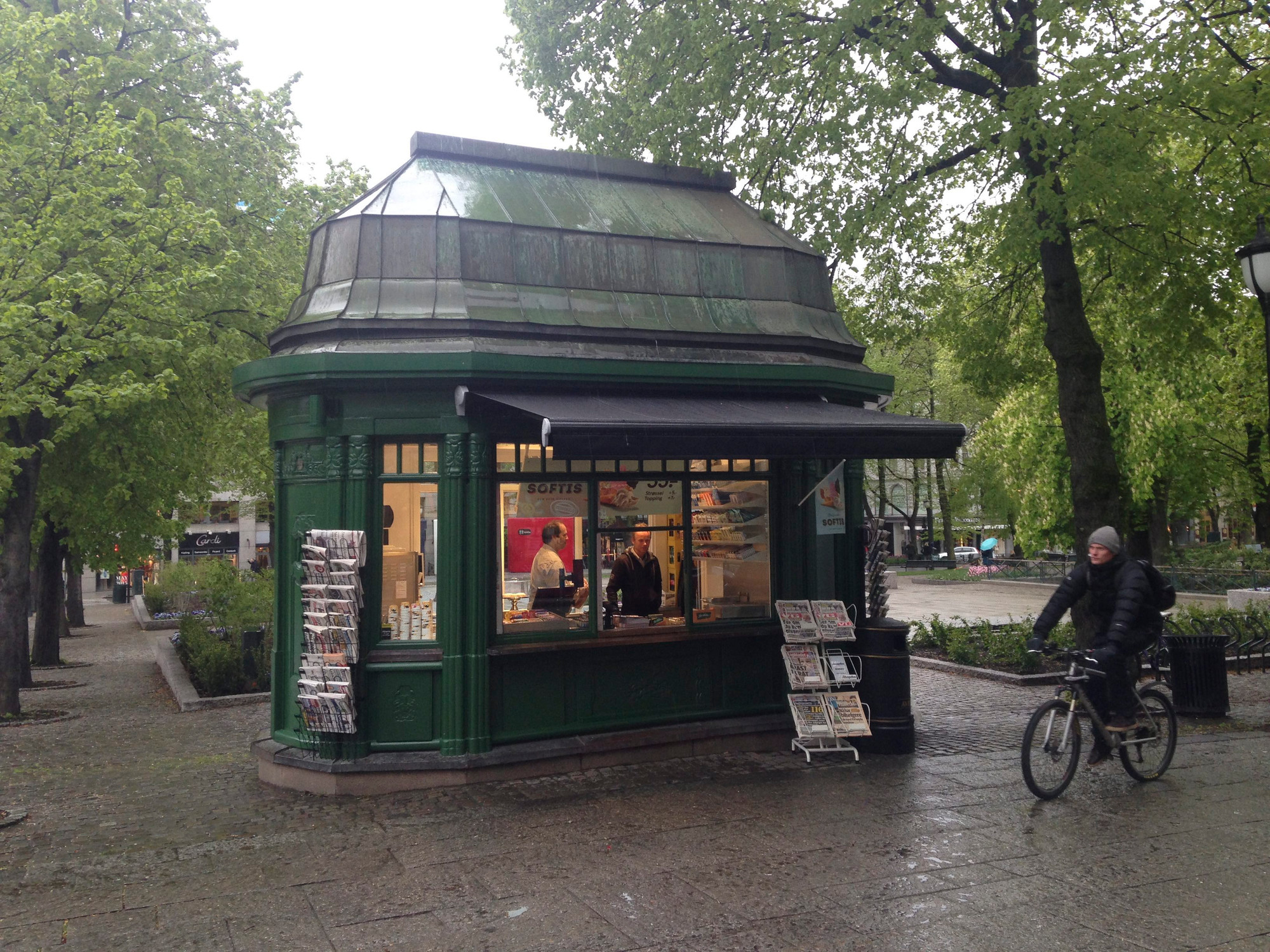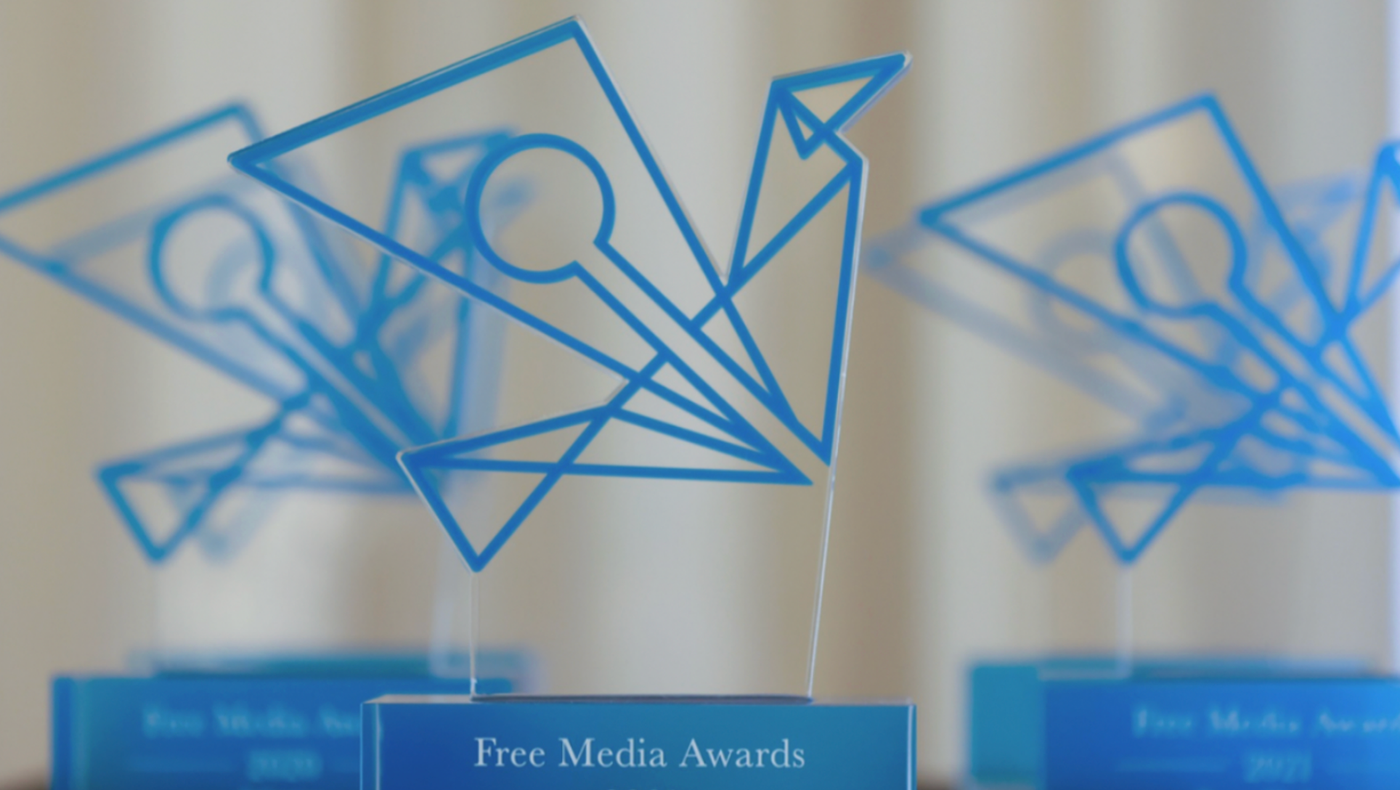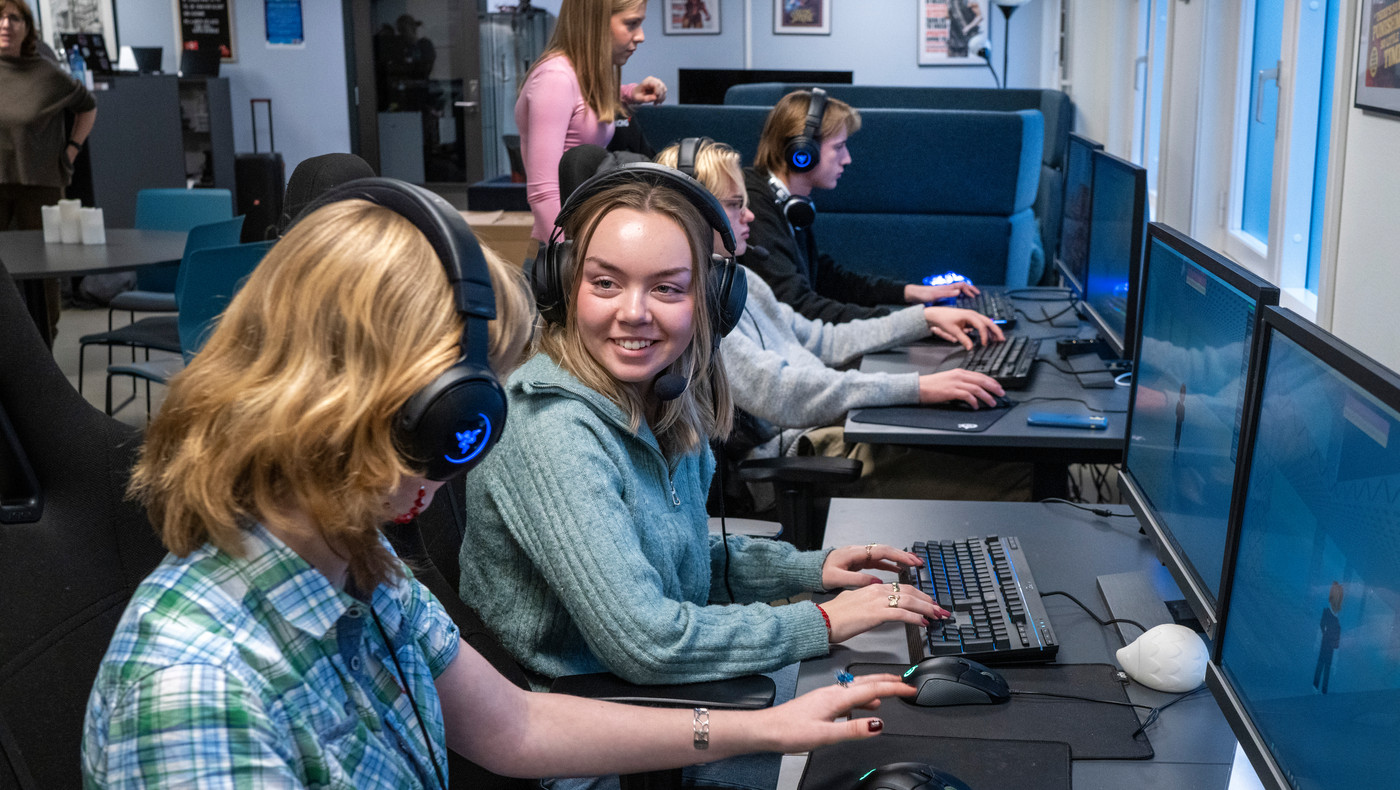The Fritt Ord Foundation turns 48!
The Fritt Ord Foundation was founded on 7 June 1974. Many are not aware of the fact that Fritt Ord originated with the Narvesen chain of kiosks.
Most people probably think of Narvesen as a place to buy a quick snack while on the move, but in the post-World War II era, the Narvesen Kioskkompani was Norway’s only open distribution channel for newspapers and journals. The initiative to establish the Fritt Ord foundation was taken by Narvesen’s Managing Director Jens Henrik Nordlie, Deputy Managing Director Finn Skedsmo and Supreme Court Advocate Jens Christian Hauge, all three of whom were veterans of World War II. The occupation of Norway, including strict political regimentation and a ban on the expression of all independent opinions, was a sharp reminder that a democracy cannot survive without freedom of expression. This freedom was contingent not only on everyone being able to write and say what they pleased, but also on contributions to the social debate actually reaching the people of Norway.
To ensure open distribution of newspapers and journals to the general public on a permanent basis and to better protect freedom of expression, the Narvesen executives resolved to establish the foundation under the Norwegian name ‘Institusjonen Fritt Ord’ (the Freedom of Expression Foundation, Oslo) on 7 June 1974. The foundation assumed control of all the shares in the Narvesen company for the purpose of safeguarding the company’s independence as an accountable owner. On the same date, the Narvesen company merged with Norsk Spisevognselskap, a wholly-owned subsidiary of the Norwegian State Railways (NSB).
From the very beginning, the activities of the Freedom of Expression Foundation (Fritt Ord) were linked to initiatives such as supporting the newly established Norwegian Institute of Journalism, a grants programme designed to stimulate the exploration of issues related to freedom of expression and, not least, the Freedom of Expression Foundation Prize.
As time passed and the Internet created new opportunities for expression and distribution, and as the multi-cultural media society raised new questions about the conditions for freedom of expression, Fritt Ord decided to gradually sever its close ties to Narvesen. The bond between Fritt Ord and Narvesen came to an end when Fritt Ord sold its last shares in Narvesen in 2001.
Fritt Ord will celebrate its 50th anniversary in 2024. This will be commemorated, among other events, by the publication of a critical, independent book on the foundation’s history from the time it was founded in 1974 and up to the present. The book is being written by Hilde Gunn Slottemo, a professor of History at Nord University. In addition to the Fritt Ord Foundation’s history, the book will address and reflect Norwegian and international societal trends during the same five decades.




